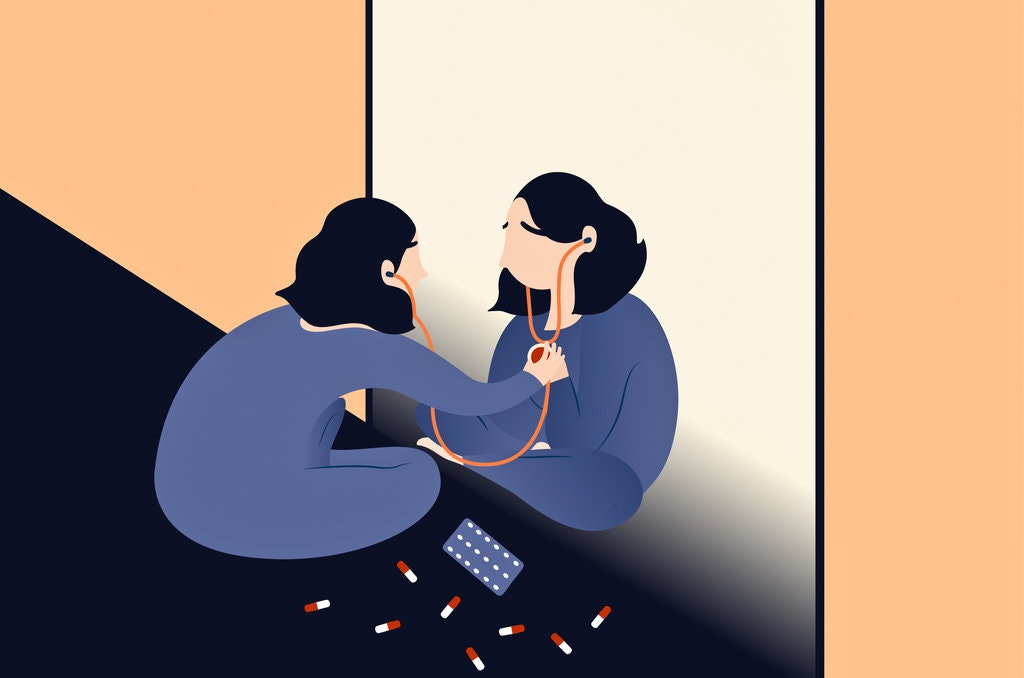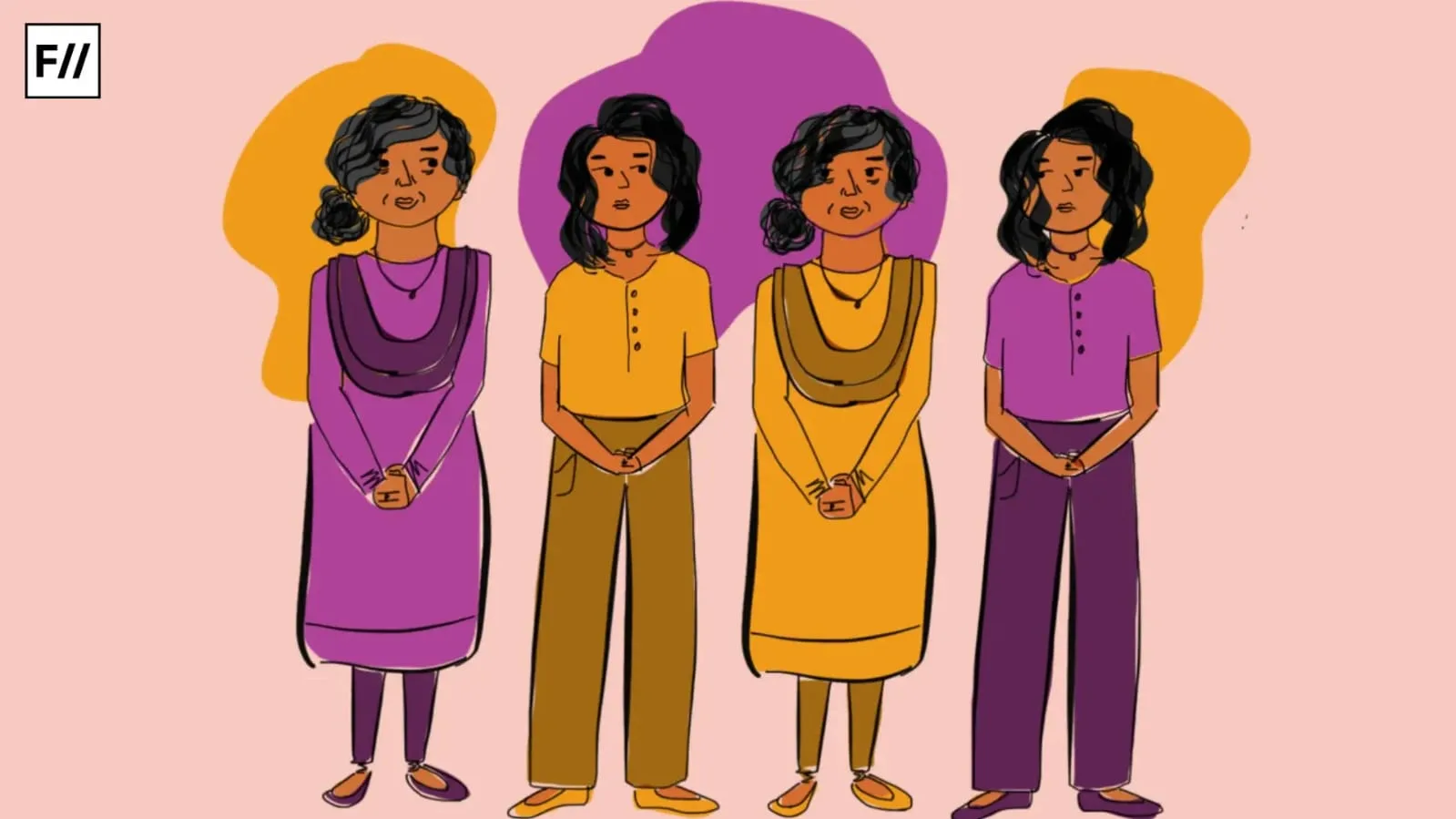One day, Jyoti’s parents asked their family astrologer to visit so that the wise man could read and analyze their children’s palms and birth charts, in order for them to gain insight on what the future held for each of them. She was nine years old then. The astrologer moved from one sibling to another, shedding light on some major events. He declared that Jyoti might not live as long, which worried the parents, but only so much. These things, after all, must be consumed with a pinch of salt. But the nine-year-old could never get the memory of this day out of her head. The seed of fear was sown.
She suppressed this and went on living her life. After getting married at the age of 21 and moving to a completely new environment, she experienced years of distress and emotional pain living with her new family. But as a woman who had a day job, two children and a family to feed, she didn’t give up on life and decided to keep going. During times of sickness, even minor ailments, the seed would grow and grow some more into a spiral of debilitating anxiety, with terrible thoughts occupying her mental space, thoughts that she was embarrassed to express with her husband.
She would lie down for her afternoon naps with her daughter, zoning out into the dark, blank space, while her curious child watched her mother lose herself into nothingness. Her fear was palpable and the daughter picked it up soon enough, for she would express it every now and then, almost randomly, only in front of her. She became obsessed with the idea of ill-health and the horror it entailed, for the trauma she experienced in childhood remained unaddressed, and thus took a major toll on her life. Every time she fell sick, the daughter would also get anxious, and eventually started fearing the idea of illness herself. She would look up her mother’s symptoms, go through her medical history, all the while absorbing the fears that would haunt her in her adulthood.
This unwarranted, excessive fear or belief that one has a serious illness, irrespective of medical reassurance and lack of diagnostic findings is called Illness Anxiety Disorder, or sometimes Hypochondriasis.
What is Illness Anxiety Disorder?
This unwarranted, excessive fear or belief that one has a serious illness, irrespective of medical reassurance and lack of diagnostic findings is called Illness Anxiety Disorder, or sometimes Hypochondriasis. A person with this disorder may become easily alarmed at the onset of any signs of illness, including normal bodily sensations or mild symptoms. Even a doctor’s reassurance may not alleviate their fears, in fact, sometimes reassurance can be frustrating. The pattern can at times interfere with the person getting proper care if they develop a medical illness that can actually be treated effectively.
In severe cases, a person may consult multiple doctors, looking for one that confirms a feared illness. In some ways, it can be compared to Obsessive-Compulsive Disorder (OCD). The person feels compelled to do things such as feeling lumps, looking up symptoms and visiting a doctor to feel less anxious.
Causes and Symptoms
The exact cause of Illness Anxiety Disorder isn’t known, but the following factors may play a role:
- Beliefs, that all unusual bodily sensations are a sign of major illness,
- Family, having parents who worried too much about their own or the child’s health,
- Past experience with illness, having a serious illness in childhood may instill a fear of physical sensations.
Also read: Here Is How I Fought My Anxiety Disorder As A Single Mother
The symptoms include preoccupation with the idea that one is seriously ill, based on normal physical signs and sensations. Some of the other symptoms are:
Every time she fell sick, the daughter would also get anxious, and eventually started fearing the idea of illness herself. She would look up her mother’s symptoms, go through her medical history, all the while absorbing the fears that would haunt her in her adulthood.
- Getting easily alarmed about one’s health status
- Finding little or no reassurance from doctor visits or negative test results
- Excessive worrying about a particular medical condition or one’s risk of developing a medical condition because it runs in their family
- Frequently browsing the internet for causes of symptoms or possible illnesses
- Repeatedly inspecting one’s body for signs of illness or disease
- Frequently visiting doctors for reassurance or avoiding medical care for fear of being diagnosed with a serious illness
- Constantly talking about one’s health and possible illnesses
- Being in a consistent state of distress that it becomes hard to function
Psychotherapy can be helpful to manage anxiety about one’s health, sometimes along with medication. Cognitive Behavior Therapy (CBT) or talk therapy can be an effective treatment as it helps one learn skills to manage stress. It can help in the following ways:
- Identifying fears and beliefs about having an illness and becoming more aware of one’s behaviour when in distress,
- Reducing behaviours of frequently checking one’s body for signs of illness and repeatedly seeking reassurance,
- Learning alternate ways to view body sensations by working to change unhelpful thoughts,
- Addressing other mental health disorders, such as depression.
If you know someone with significant health anxiety, encouraging them to consider a mental health referral to learn ways to cope with Illness Anxiety Disorder. The obsession and stress associated with it can be overwhelming and may affect them for life, which is why awareness and intervention become crucial.
Also read: Generalised Anxiety Disorder: Past Wounds Which Affect The Present
References
Featured Image Source: The New York Times
About the author(s)
Priyanka is an unfulfilled engineer and an MBA graduate from IIM Indore. She is a writer, interested in carving the world through her biased lens, painting pictures with heavy imagery and highlighting the mundane, often ignored, but essential aspects of life. Her latest project is The Mental Indian, an attempt to de-stigmatize mental health in India, through stories, perspectives and conversations.





Brilliant article. So insightful. It is well-timed for new parents like me, to keep in mind the points while bringing up our children.
Thank you, Priyanka, for this article! Keep up the good work.